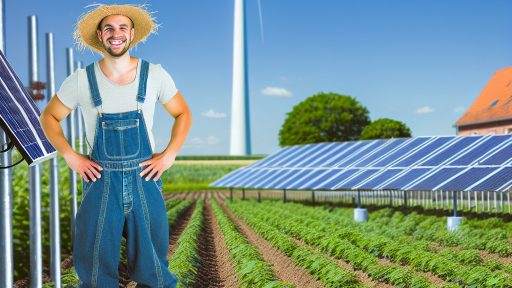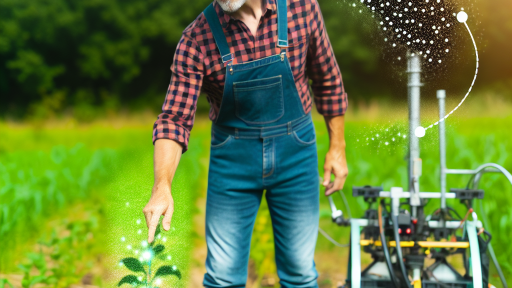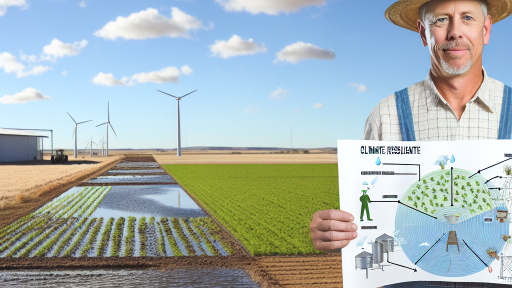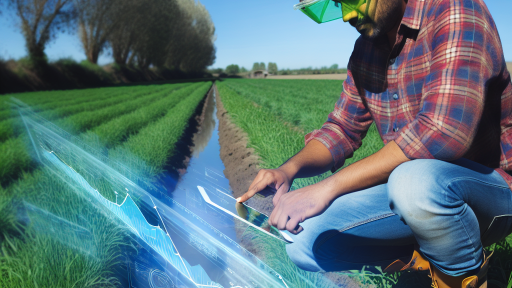Introduction to Water Scarcity in Agriculture
Water scarcity poses a serious threat to global agriculture.
As the world’s population grows, the demand for food increases.
Consequently, farmers face challenges in sourcing enough water.
Traditional irrigation practices often lead to inefficiencies.
This results in significant water waste and resource depletion.
Moreover, climate change exacerbates these challenges.
It leads to unpredictable weather patterns and prolonged droughts.
The Need for Optimization
Optimizing water use is essential for sustainable farming.
Efficient water management supports crop health and productivity.
It also impacts the overall profitability of farming operations.
Technological solutions can help address these issues effectively.
Farmers increasingly turn to innovative tools for water management.
These technologies offer real-time data and automation options.
Benefits of Water Optimization
Implementing water optimization strategies leads to numerous advantages.
- Conservation of water resources.
- Reduced operational costs for farmers.
- Improved crop yields through precise irrigation.
- Enhanced resilience to climate variability.
Overall, technology not only aids in safeguarding water resources but also improves agricultural practices.
Transform Your Agribusiness
Unlock your farm's potential with expert advice tailored to your needs. Get actionable steps that drive real results.
Get StartedOverview of Current Irrigation Techniques and Their Limitations
Traditional Irrigation Methods
Traditional irrigation methods include surface, drip, and sprinkler systems.
Farmers often use these systems for efficiency and coverage.
However, they come with significant limitations.
Surface Irrigation
Surface irrigation relies on gravity to distribute water across fields.
This method is simple and cost-effective.
Nonetheless, it can lead to uneven water distribution.
Additionally, it may cause soil erosion and water wastage.
Drip Irrigation
Drip irrigation delivers water directly to plant roots.
This technique minimizes evaporation and runoff.
Yet, it requires regular maintenance to prevent clogging.
In some cases, upfront costs can be prohibitive for farmers.
Sprinkler Systems
Sprinkler systems mimic natural rainfall, distributing water from above.
They are versatile and can cover various land shapes.
However, they can waste water due to wind and evaporation.
Furthermore, they may lead to over-saturation of soils in some areas.
Technological Advancements
New technologies aim to enhance irrigation efficiency.
For example, automated systems can optimize water use based on real-time conditions.
Yet, many farms lack the resources to implement these systems.
Moreover, technology can be expensive and require training.
Environmental Considerations
Current irrigation methods can contribute to water scarcity.
Over-extraction of water bodies affects local ecosystems.
Furthermore, inefficient systems can degrade soil health over time.
Addressing these limitations is crucial for sustainable farming practices.
Introduction to Smart Irrigation Systems
Smart irrigation systems revolutionize how farmers manage water resources.
Showcase Your Farming Business
Publish your professional farming services profile on our blog for a one-time fee of $200 and reach a dedicated audience of farmers and agribusiness owners.
Publish Your ProfileThese systems utilize technology to optimize water use efficiently.
Farmers can now apply water directly to crops based on their needs.
This approach significantly reduces water waste in agriculture.
Benefits of Smart Irrigation Systems
Smart irrigation systems offer several compelling benefits for farmers.
First, they enhance water efficiency and conservation.
With precise water application, crops receive the ideal amount.
This targeted watering lessens the burden on local water supplies.
Adaptive Features for Different Conditions
Another advantage involves the adaptive features of these systems.
Many smart systems adjust irrigation schedules based on weather data.
They can detect rainfall and delay watering accordingly.
This adaptability improves overall resource management on farms.
Cost Savings Over Time
Investing in smart irrigation technology leads to long-term cost savings.
Farmers benefit from reduced water bills and lower labor costs.
Moreover, healthier crops yield higher profits during harvest.
These factors culminate in a more sustainable farming practice.
Environmental Impact
Smart irrigation systems contribute positively to the environment.
By minimizing runoff, these systems protect local ecosystems.
Additionally, they reduce the impact of agriculture on climate change.
Farmers play a vital role in promoting ecological sustainability.
Learn More: Carbon Footprint Reduction Methods for Farmers
Technological Advancements in Soil Moisture Sensors and Their Application
Introduction to Soil Moisture Sensors
Ssoil moisture sensors play a crucial role in modern agriculture.
These devices help farmers monitor water levels in the soil accurately.
Effective monitoring leads to optimized irrigation practices.
Types of Soil Moisture Sensors
Various types of soil moisture sensors are available today.
Capacitive sensors measure the dielectric constant of the soil.
Resistive sensors determine moisture levels based on soil conductivity.
Each type has unique advantages and applications.
How Soil Moisture Sensors Work
Ssoil moisture sensors operate by sending electrical signals through the soil.
The resistance or capacitance changes based on water content.
As a result, farmers receive real-time data about soil conditions.
Benefits of Using Soil Moisture Sensors
Using soil moisture sensors greatly enhances water efficiency on farms.
These sensors help prevent overwatering and underwatering.
Farmers can tailor their irrigation schedules effectively.
In addition, crops grow healthier with optimal moisture levels.
Applications in Different Farming Methods
Ssoil moisture sensors are adaptable to various farming techniques.
In traditional agriculture, they assist in managing water resources.
For precision farming, sensors become integral for high-yield crops.
Moreover, these devices fit well into organic farming practices.
Integration with Smart Farming Technologies
Ssoil moisture sensors integrate seamlessly with smart technology systems.
Farmers can connect these sensors to mobile apps for remote monitoring.
Showcase Your Farming Business
Publish your professional farming services profile on our blog for a one-time fee of $200 and reach a dedicated audience of farmers and agribusiness owners.
Publish Your ProfileAutomated irrigation systems can receive input from these sensors.
This integration ensures precise water application based on real-time data.
Case Studies of Successful Implementation
Many farms have reported improved outcomes using moisture sensors.
One example is Green Valley Farms, which increased yields by 20%.
Another is Sunny Fields, where water usage decreased by 30%.
These successes showcase the effectiveness of proper technology use.
The Future of Soil Moisture Sensors
The future looks promising for soil moisture sensor technology.
Advancements in sensors will lead to even greater accuracy.
Integration with artificial intelligence will enhance predictive capabilities.
Farmers will benefit from smarter irrigation solutions over time.
Uncover the Details: Advanced Mulching Techniques to Preserve Soil Moisture
The Role of Data Analytics in Monitoring and Managing Water Usage
Improved Decision Making
Data analytics enhances decision-making on farms.
It provides valuable insights into water consumption patterns.
Farmers can make informed choices regarding irrigation schedules.
This approach optimizes water use efficiency significantly.
Real-Time Monitoring
Modern technology enables real-time monitoring of water usage.
Sensors collect data on soil moisture levels and crop needs.
This information allows farmers to adjust irrigation promptly.
By utilizing this data, farmers can reduce water waste effectively.
Predictive Analytics
Predictive analytics plays a crucial role in water management.
Farmers can forecast future water needs based on historical data.
This capability aids in planning for droughts or heavy rainfall.
In turn, it helps secure adequate water supplies throughout the season.
Resource Allocation
Data analytics assists in efficient resource allocation.
Farmers can identify which crops require more water than others.
This targeted approach minimizes resource waste.
As a result, it leads to increased crop yields and sustainability.
Enhancing Crop Health
Appropriate water management directly impacts crop health.
Data-driven practices enhance nutrient uptake in plants.
Healthy crops are more resilient to pests and diseases.
Therefore, optimizing water use contributes to overall farm productivity.
Learn More: Implementing Cover Crops to Enhance Water Retention
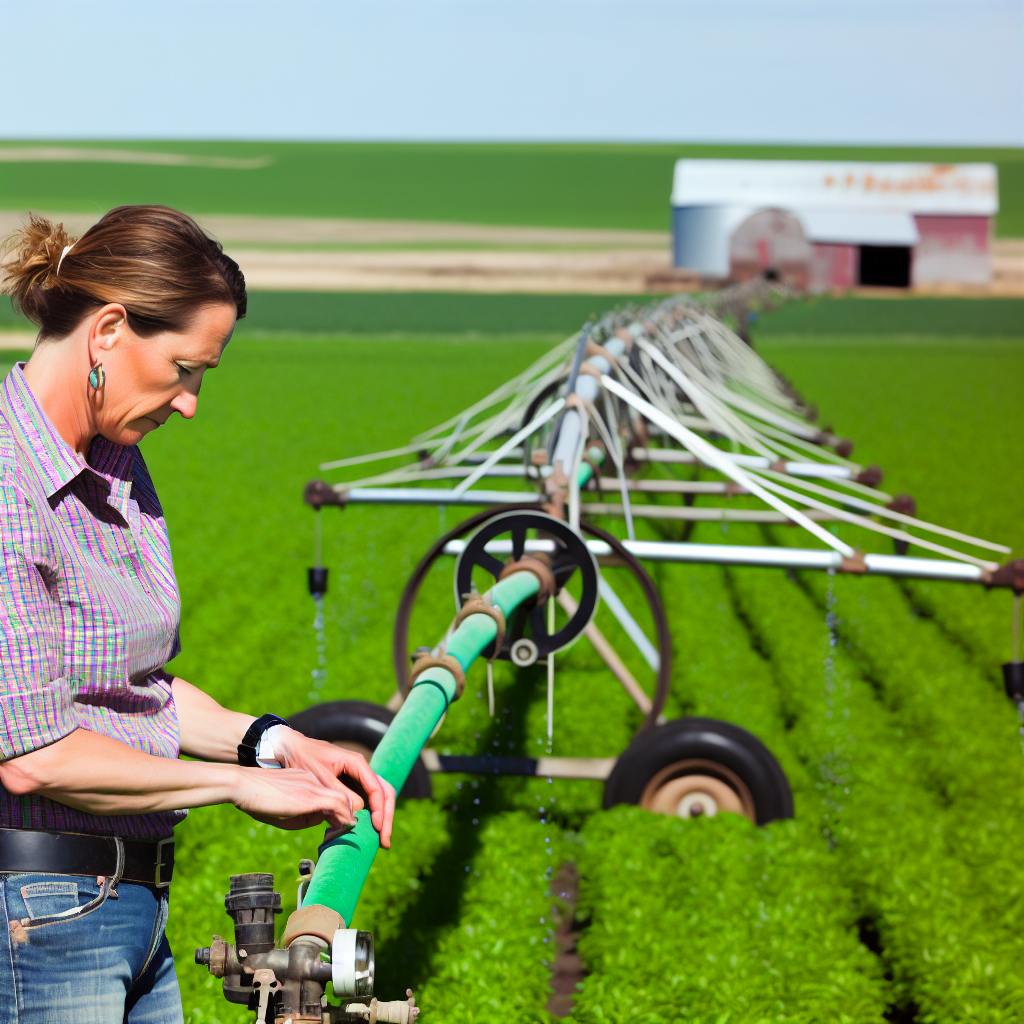
Case Studies on Successful Implementation of Technology in Water Management on Farms
Smart Irrigation Systems
Farmers increasingly adopt smart irrigation systems to optimize water use.
These systems adjust watering schedules based on real-time soil moisture data.
For instance, Green Valley Farms uses soil sensors to collect data.
This information allows them to irrigate precisely when necessary.
The farm has seen a 30% reduction in water usage since implementation.
Drones for Field Monitoring
Drones play a crucial role in modern agricultural practices.
They provide aerial views of fields, helping farmers monitor water distribution.
Sunny Acres implemented drone technology for efficient resource management.
Showcase Your Farming Business
Publish your professional farming services profile on our blog for a one-time fee of $200 and reach a dedicated audience of farmers and agribusiness owners.
Publish Your ProfileThese drones detect areas needing extra water through thermal imaging.
As a result, Sunny Acres reduced water waste significantly.
Weather Forecasting Tools
Accurate weather forecasting tools guide irrigation planning.
Riverside Farm uses predictive analytics to manage water resources.
These tools forecast rainfall and guide irrigation scheduling.
This has led to a 25% decrease in unnecessary irrigation cycles.
Furthermore, this strategy contributes to better crop yields.
Integrated Water Management Solutions
Integrated systems combine various technologies for comprehensive management.
Blue Sky Organics has adopted an integrated platform for managing water use.
This platform includes sensors, weather analytics, and irrigation control.
It allows the farm to track water usage automatically.
This approach has improved overall water efficiency by 40%.
Real-Time Data Analysis
Real-time data analysis enables quick decision-making in water management.
FarmTech Solutions provides farmers with this essential tool.
They analyze data from multiple sources to recommend actions.
This proactive approach has helped farmers like Oakwood Farms save water.
They have achieved a notable enhancement in crop health and productivity.
Learn More: Benefits of Renewable Energy for Modern Farmers
Integrating Weather Forecasting Tools for Proactive Water Management Strategies
Importance of Weather Forecasting in Agriculture
Weather forecasting plays a critical role in modern agriculture.
It allows farmers to make informed decisions about water use.
Additionally, it helps in minimizing water waste on farms.
Types of Weather Forecasting Tools
There are various weather forecasting tools available today.
These tools include satellite imaging and radar systems.
Farmers can also utilize online platforms for localized forecasts.
Benefits of Using Weather Forecasting
Weather forecasting enhances water management efficiency.
Farmers can plan irrigation schedules based on predicted rainfall.
This approach helps in conserving water resources effectively.
Moreover, farmers can improve crop yield through timely interventions.
Implementation Strategies
Farmers should consider integrating weather tools into daily operations.
This integration can involve training staff on tool usage.
Additionally, regular updates from weather services are crucial.
Using mobile apps can facilitate real-time weather information access.
Success Stories from the Field
Many farmers have achieved success by using weather forecasting.
For instance, Anna’s Farm in California increased yields by 20%.
This improvement resulted from better irrigation management.
Future Trends in Weather Forecasting for Agriculture
The future of weather forecasting in agriculture looks promising.
Advancements in technology may provide more precise data.
Furthermore, artificial intelligence could enhance predictive capabilities.
Farmers will benefit from increasingly accurate weather models.
Future Trends in Agricultural Technology for Sustainable Water Use
Emerging Technologies
Innovative technologies are reshaping water management practices in agriculture.
Showcase Your Farming Business
Publish your professional farming services profile on our blog for a one-time fee of $200 and reach a dedicated audience of farmers and agribusiness owners.
Publish Your ProfileAdvancements in sensors enable farmers to monitor soil moisture in real time.
Furthermore, smart irrigation systems optimize water usage based on these readings.
This leads to more efficient water distribution across various crops.
Data-Driven Decision Making
Data analytics is becoming crucial for optimizing water use in agriculture.
Farmers can analyze historical data to predict water needs accurately.
In addition, machine learning algorithms enhance these predictions continually.
This results in tailored irrigation schedules that conserve water effectively.
Integration of Drones
Drones are revolutionizing how farmers approach irrigation management.
They provide aerial views that help assess crop health and hydration levels.
Moreover, drone technology enables targeted irrigation applications.
This approach minimizes water waste and improves crop yields.
Soil Health Monitoring
Monitoring soil health plays a vital role in sustainable water use practices.
Advanced soil sensors measure moisture levels and nutrient concentrations.
This data informs farmers about when to irrigate and how much water to apply.
Consequently, this leads to healthier crops with less resource waste.
Policy and Community Engagement
Collaborative efforts are essential for the advancement of water management technologies.
Policies must support research and development in sustainable practices.
Additionally, educating farmers about new technologies enhances their adoption.
This collective approach will drive innovation in water conservation.
Additional Resources
Conservation Trends in Agriculture Reflect Policy, Technology, and …
The Environmental Benefits of Precision Agriculture Quantified …

